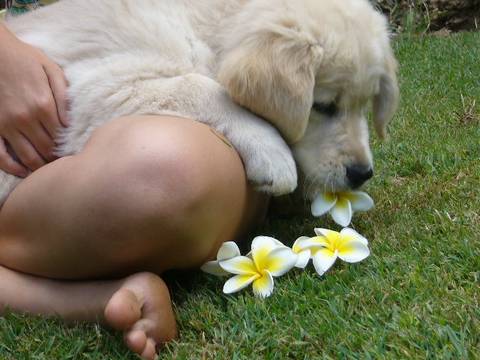PUPPY BUYING INFO..
There are some wonderful people in the dog breeding industry.
They love their dogs. They do all than can to strengthen their breed by breeding better and better dogs each generation. But, as in all businesses, there are people who are in it just for the money, people who cut corners, break the rules and try to make a fast buck. They are unconcerned with whether you get a healthy dog that is close to the breed standards. They just want your money. You need to know how to spot them, and to avoid them. There are plenty of reputable breeders out there for every breed. With a little planning and effort, your puppy buying decision can be one you can be pleased with for many years
How do responsible breeders go about bettering the breed, and how can you tell which breeders are good? When you decide on a specific breed, one that you feel would be a good fit for your life and family, the next step is to begin thorough research. Through your research, you will learn what to look for in a dog of your chosen breed, .what health issues are of particular concern to your breed, and general practices of those involved in your breed.By doing this you very well may be saving yourself from a lot of expensive vet bills and misery in the future
There are specifics of each breed, and those specifics must be brought into consideration when choosing a breeder. However, there are a number of general things you should look for in any breeder.
What most people don't realise is that just because a breeder is registered does not necessary mean that a breeder is good or ethical.
The terms "Ethical breeder" and "Responsible breeder" are used a lot in the purebred dog world. But what exactly constitutes an ethical producer of dogs? An ethical breeder is someone whose number one goal is to Better the Breed.
The following is an "Ethical Breeder Protocol" and notes:
- The ethical breeder's main desire is to better the breed. They breed for the love of the dogs and because they want to see the breed flourish in the future. That means they only breed those dogs that have traits of value to the breed to pass on to progeny. Each generation should be at least as good as the previous, and ideally it should be better.
- The ethical breeder carefully screens all breeding stock for health problems, and has proof of absence of problems from recognised dog health registries. Health concerns vary from breed to breed, and recommended health tests will therefore vary (this is why it is extremely important for a prospective buyer to be aware of the health concerns related to their breed of choice, so that they know what health tests to ask about when interviewing breeders).
- The ethical breeder is usually involved heavily in the sport of purebred dogs, whether in conformation, showing, obedience, field trials or herding, etc. Stay aware from breeders who bash organised dog sports and say they stay away from competition because of politics. This usually signifies that the breeder's dogs just can't cut it in the show ring/trial field.
- The Ethical breeder screens prospective buyers very carefully. They ask a lot of questions to be sure that their puppies only end up in the best of homes.
- The ethical breeder is knowledgeable about their breed and will answer questions and concerns regarding the dogs willingly and openly.
- The ethical breeder does not support him/herself by breeding dogs. Breeding should not be a business--done correctly, there is very little money to be made in breeding dogs. Steer clear of breeders who make their living off of producing puppies.
- The ethical breeder's premises are neat and clean. Dogs are well exercised, happy and healthy, are up to date on immunisations, well-fed and well-groomed. There is no excuse for dirty, matted, skinny, or under-exercised dogs. If these things are obvious, look elsewhere for a puppy. A breeder should Never have more dogs than they can physically care well for.
- Ethical breeders generally only have A litter at a time. Beware the breeder that has a lot of litters on the ground or a number of pregnant bitches. Although this isn't necessarily a bad thing (a lot depends on the circumstances of the individual breeder and the situation at hand), generally speaking the breeder with an abundance of litters/bred bitches should be avoided.
-
-
You have to protect yourself. You are in complete control of the process until you hand over the money. After that the breeder is in control. Don't miss this point. Breeders will be your best friend in the world until he has your cash. After that, you may become a nuisance to be avoided. Use this fact to your benefit. Before you hand over any money, ask lots of questions, ask to see what you want to see, demand a contract, ask for concessions, anything you want MUST be demanded while your are in charge. Your opportunity to analyze the situation and look for warning signs can come to an end when you hand over money. Even a down payment can turn the tables on you. If you put down a deposit, the breeder can clam up. If you become unhappy and back out, he keeps your money and sells the puppy to someone else for full price. Keep your money until you are completely sure about the purchase.
We advise asking to see results from tests with your own eyes and not just going on what the breeders says the results were. It would be in you own intrerest to research on what the Breed Average is on the Hips & Elbows at the time of the purchase..
Your breeder should also microchip the pup before leaving their place and provide you with a copy of the microchip number and paperwork. When you take your pup for his vet visit, take along the number you have and ask the vet to scan and check the number off to ensure that the chip and the paperwork correspond.
 MORE HELPFUL INFORMATION TO COME....... MORE HELPFUL INFORMATION TO COME.......

|
|



